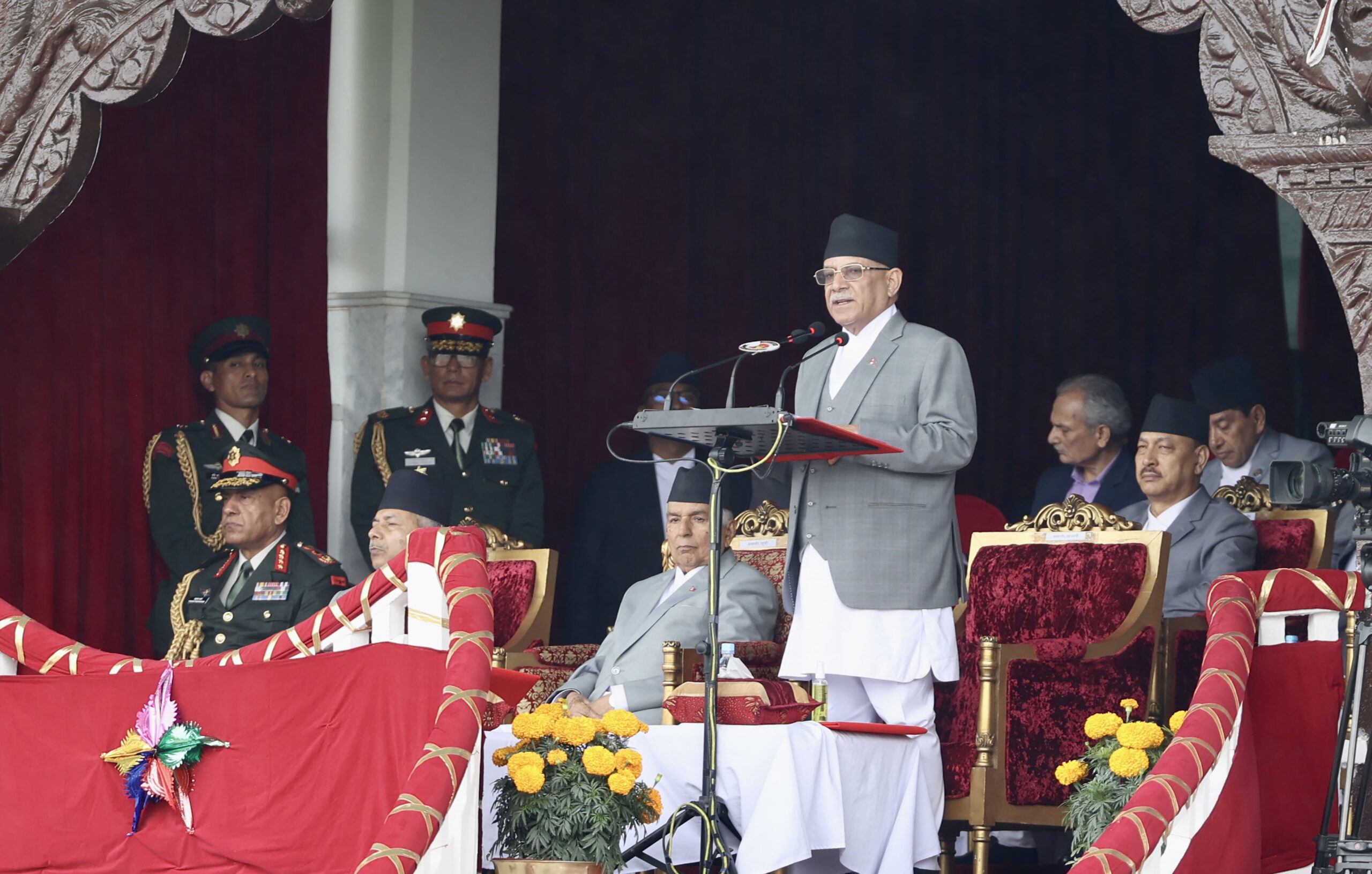KATHMANDU: Prime Minister Pushpa Kamal Dahal ‘Prachanda’ has stated that the government is committed to taking the peace process to a logical conclusion and completing the remaining tasks of transitional justice.
At a special function organized at the Nepal Army Pavilion in Tundikhel today on the occasion of Republic Day, Prime Minister Dahal mentioned that most activities related to conflict management and peace establishment have been completed to address the sentiments of the constitution.
“The government is determined to conclude the peace process and complete the remaining activities of transitional justice,” he added.
He highlighted that Nepal’s approach to conflict management and peace establishment has set a new example globally.
Allowances have been distributed to those injured and mutilated during the armed conflict and people’s movement, including compensation, treatment, employment opportunities, financial assistance, and rehabilitation facilities for conflict-affected families.
The Prime Minister also emphasized that the three-tier elections held in a free, fearless, and impartial manner have strengthened the federal governance system in the country.
He noted that the three levels of government are functioning for the welfare and prosperity of the citizens.
“The government is committed to advancing the country towards its national aspiration of a prosperous Nepal and happy Nepalis, along with the establishment of political stability, good governance, development, and social justice,” the Prime Minister said.
He stressed that achieving a socialism-oriented socio-economic transformation is essential for the nation and its citizens.
The Prime Minister outlined the government’s top priorities: effective implementation of the constitution, strengthening federalism, economic reform and recovery, promotion of good governance, improvement and simplification of the public service delivery system, establishment of civic-friendly governance, and prevention of corruption.
He noted that historically marginalized communities now have rights and participation in decision-making levels within various state bodies.
This revolutionary change has enabled communities that endured centuries of oppression, including those subjected to untouchability, to hold positions in 6,743 wards and other state bodies.
The Prime Minister highlighted that women, who were previously confined to domestic roles, now lead 753 local levels as mayors or deputy mayors.
Women’s participation has been ensured not only in the public sector but also in the political and social sectors. Various constitutional commissions are working to promote the rights of marginalized communities and mainstream their participation in all state bodies.
“We are commemorating Republic Day as a milestone in Nepal’s journey towards prosperity, symbolizing the eradication of social, cultural, and economic disparities that have long plagued Nepali society,” the Prime Minister concluded.









Comment